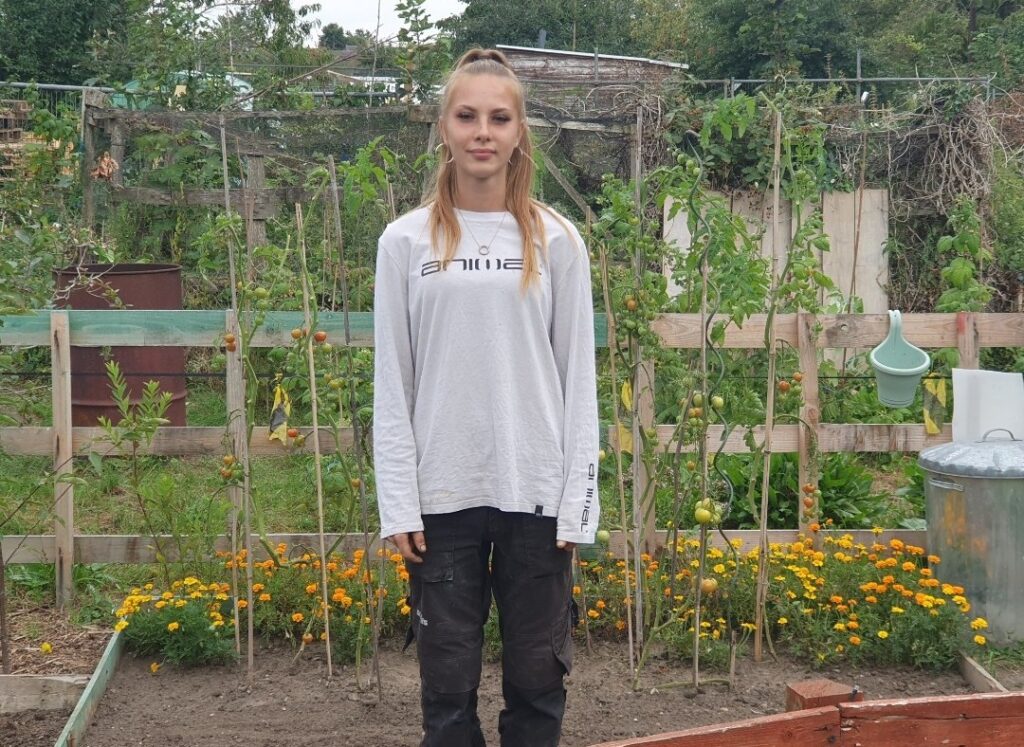Young people are increasingly living in homelessness accommodation for two to four years as private rents soar and long wait lists for social housing make it extremely tough to move out, EveryYouth can reveal.

Combined with a scarcity of permanent jobs and fears of landlords with unconscious bias, it’s near impossible for young people without support to move into a shared tenancy or place of their own.
Youth homelessness charities in the EveryYouth Network are now allowing young people to stay for three or four years in supported accommodation before they move into their own place. A few years ago, they were expected to move on after one year. This is causing a backlog of young people reaching crisis point in need of a bed in homelessness accommodation.
At 1625 Independent People, an EveryYouth charity in Bristol, the waitlist for the Future Builders programme has grown from 10 people to 35 in two years. By renovating neglected properties, EveryYouth’s Future Builders programme provides affordable accommodation for young people participating in education, employment and training without them needing to access benefits. This helps them to save for a rental deposit much faster.
But Future Builders team leader Hannah Green fears landlords are exercising unconscious bias towards young single people trying to find a rental, and young people from minority ethnic backgrounds where English is their second language.
“People are reluctant to rent to them. If you look on rental websites, there are a lot of people don’t want someone under 25,” says Ms Green. “A lot of people prefer to rent to couples rather than single people. I think that’s because of the stereotype that young people are going to be partying or causing trouble, which is hilarious because a lot of our young people are a lot more grown up and responsible.
“A lot of them have had to be responsible since they’re about 10, 11 years old. A lot of them have been financially supporting families since they were able to work.”
Ms Green is calling for landlords to adopt a blind application process. But she says a lack of jobs available is also making it difficult for young people to save for a deposit. Work in many parts of the UK is seasonal, with zero hour contracts common, and landlords are more likely to choose a tenant with a full time contract.
“A lot of people prefer to rent to couples rather than single people because of the stereotype that young people are going to be partying or causing trouble, which is hilarious because our young people are a lot more grown up and responsible.”
One young person earning £2,200 per month couldn’t secure a rental, she said. On average it costs £650 for a room in a shared house and £1200 for a one-bedroom flat in Bristol, she says. The monthly cost of renting a home in the UK has risen by £221 in three years, according to property portal Zoopla.
“A lot of them are starting out part-time working and maybe earning £800 to £1000,” says Ms Green. “Over the last six months, the job market’s been a lot more challenging. So we are noticing people finding it a lot harder to find those entry level jobs that they would’ve snapped up easily to two years ago.”
At The Benjamin Foundation in East Anglia, another charity in the EveryYouth Network, multi service manager David Gooch says young people can’t earn too much while on the housing benefit.
“We have issues with young people who want to work and do work, and then getting to very significant arrears because the housing benefit is reduced and then they have to make up the shortfall. People who would be able to save the deposit to move to private rent are not helped to do so because they’re being punished for working,” he says.
“They should be receiving support from the Government and reductions in penalties to work. Young people would see that and be far more incentivised.”
Patti, 21, has been supported by The Benjamin Foundation for four years after experiencing homelessness.
“I was homeless for a very long time. Sleeping rough in a forest for about four years,” she says. “When I moved [to The Benjamin Foundation] I had no documentation, no ID. I left school and I had no GCSEs. I literally had nothing.”
“I am manifesting that by the end of this year I’ll be out of the hostel. I have been here for four years, coming up to four and a half. I got my first ever job which was the best thing ever. Now my next step is moving out.”
She now cultivates a successful allotment, growing numerous veggies for herself and others, is a qualified personal trainer, and secured her first ever job. She is keen to move out of supported accommodation and into her own home but is struggling to do so.
“I am manifesting that by the end of this year I’ll be out of the hostel because you’re only supposed to be here for two years, and I have been here for four years, coming up to four and a half. All I have been wanting is a job. I got my first ever job which was the best thing ever. Now my next step is moving out,” she says.

Charities in the EveryYouth Network report lengthy waitlists for social homes as well, but one shared tenancy model is proving to be a success in Northern Ireland.
Operated by the EveryYouth charity MACS, the model sees support workers match two young people together who can be placed into the same social housing property. The young people can meet each other several times before confirming the decision to move in together.
“We match like-minded, compatible young people together who are in similar situations and can’t afford a tenancy on their own, so it obviously resolves their housing situation, but also their isolation in a lot of cases, so it’s really good kind of peer support for them,” says MACS spokesperson Andy Clegg.
“We work quite closely with the Northern Ireland Housing Executive, they supply the properties for us, because it works for them as well, they’re getting two people off the housing list.”
Mr Clegg says the model has been successfully housing young people in Belfast and Downpatrick, and the charity plans to roll out the scheme across Northern Ireland. He says the model could be scaled across the UK.
EveryYouth CEO Nicholas Connolly says: “The young people we support often don’t have family who can cover their rent deposit or can act as guarantors to secure a tenancy. Some have come from overcrowded homes, families in the grip of poverty or abuse, or have no family in the UK.
“Our Homed, Employed and Future Builders programmes are designed to help these people find independence and thrive.
“We urge organisations with empty homes that would be suitable for renovation, such as National Rail and local councils, to please get in touch so we can expand our Future Builders programme.”
